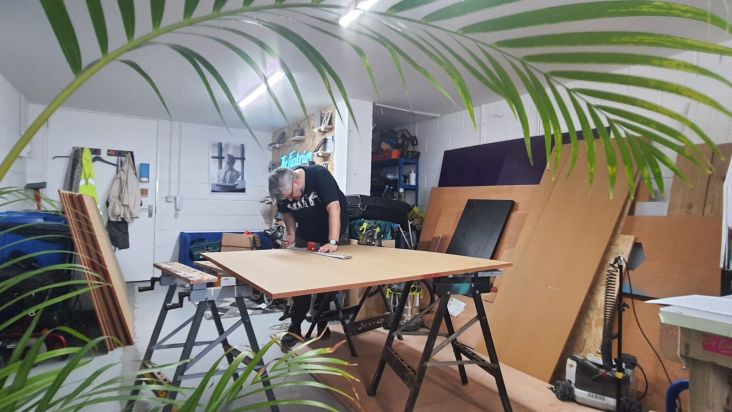Six point checklist to be well-liked and influential
Yes, you're competent. But are you influential? Being well-liked at work is vital to getting your way: Competence isn’t worth diddly if people don't like you.

Image licensed via Adobe Stock
So while you need to be yourself, be the best possible safe-for-work version of yourself by looking through the prism of these six success factors.
Fortunately, the things that will make others like you will make you love yourself. Want to be an all-round happier bunny, with better career prospects? And me!
1. Be kind all the time
Being polite and respectful always helps. But it goes far beyond minding your please-and-thank-yous though; you need to make people you interact with feel valued.
"Is this a good time?" is one of the most critical questions at work.
Things, like interrupting conversations and disrupting other peoples meetings, will make other people feel your time is more important than theirs. Similarly, eating up others' time with off-topic rambling and ranting for 10 minutes shows the same disregard for other peoples' time.
Having a little chat at work is vital to being well-liked, but having the emotional intelligence to know whether they're interested or bored/irritated/disgusted is even more important.
To make sure your kind and polite, you should monitor your audience and actively listen when people are talking (more on that in a bit). Shoddy listening skills is a widespread problem…there are 4,210 textbooks on Amazon that teach people how to listen. Avoid being part of the listening crunch; you're a long way ahead already!
Kindness at work tips
- Don't be a grass – no-one likes a snitch.
- Don't be a CC junkie – copying in all and sundry on emails won't win friends.
- Yes, ask people about their outside lives, but don't be pushy and pry.
- Avoid gossip – no matter how juicy scandalous.
- Don't look for people to blame, especially if it was you!
- Find ways to show people you were listening to them last time – remember stuff about them.
- Lob in the odd compliment (it has to be sincere).
- Respect people's time.
- Send a funny link to just one person you think will like it.
- Value other people – and let it show.
2. Dare to be original, but not stuck in your way of thinking
Conforming is part of fitting in, but consistently daring to think for yourself will make you happier, a better creative and better company. Just make sure you don't get bogged down in seeing things your way or no way.
Adam Grant, the author of Originals, says "Conformity is a dangerous thing. Conformity is about saying, 'I don’t agree with your ideas or your values, but I'm going to follow you anyway because something bad is going to happen to me if I stand out instead of fitting in'."
He goes on to describe the best way to walk this conformity tightrope: "argue like you're right, and listen like you’re wrong… [most people] are only arguing as if they’re right, and not being willing to change their minds or admit that they’re wrong."
Be open to both challenging and challenging yourself – to have your mind changed in the face of a winning argument (and not hold a grudge when you 'lose').
Originality and work tips
- You're an original, a one-off. Don't be afraid to let it show.
- Being perceived as authentic only really means people not getting your references. Mine your specific set of experiences and tastes. They are you. You are what you like.
- Find things in common, but a fresh way of putting it (Peter Kay made a career of this).
- Avoid platitudes and clichés. Say what you mean (kindly of course).
- Examine the world through all five senses – and feelings.
- Read a lot: non-fiction is particularly useful for conversation starters.
- Study other industries to cross-pollinate and steal ideas.
- Empathise – consciously consider others' perspectives.
3. Be the biggest butt of your jokes
Shared humour is the backbone of all enduring friendships, so if you can be funny at work, you're onto a winner. Having a GSOH reduces stress in yourself and others.
British humour is based on understatement, self-deprecation and sometimes, out-and-out verbal cruelty that cuts to the bone. While that's some of the funniest stuff among good friends, keep it gentle at work – even better, keep it about you.
Don't be afraid to be a bit vulnerable. A bit daft. A little bit of an over-sharer, if that's you. Over-sharing is better than under-sharing any day of the week – who would you prefer to go for a pint with?) I'm not talking about dreaded social media oversharing – I’m referring to "oversharing" in person, which in ye worlde English is called "bonding".
Humour at work tips
- Be able to laugh at yourself.
- Don't start with "here's a funny story; you'll laugh at this" – tell your story. Keep the element of surprise.
- People laugh out of surprise and to feel clever.
- It's about what you leave out of a joke, as much as what you put in –there has to be something to "get".
- Learn to tell a joke – put everything you have into it (if you ever meet Creative Boom's Katy, get her to tell you a joke. She's dead good, she does accents and everything).
- Watch stand up – you'll pick up a few bits on cadence and delivery.
- You can't be funny 100% of the time – don’t worry when jokes fall flat. Carry on regardless.
- Keep it clean-ish.
- Don't be any meaner than you'd be to someone you were on a first date with (one that's going well, that is).
4. Keep a professional curiosity at all times
Wear your curiosity on your sleeve at all times: a great tip is "always work the room like you're the dumbest person there".
You have to leave your ego at the door for this one. Acting like you've got the point to prove, correcting people or giving it the big 'un won't win friends. Your ego needs to play the long game here. It'll get massaged in the end.
Asking people for advice and asking their opinions is a great way to get along with people because you are focussed on serving their ego first. If they're boring, ask questions that steer their output in the way you find most interesting. Make it their time to shine!
Curiosity at work tips
- Most people love the sound of their voice. Indulge them
- Ask open questions
- Use active listening techniques – nods and uh huhs – to make sure you appear to be listening – just listening isn't enough
- Don't get too personal – asking opinions is cool, demanding details could be seen as prying
- Chuck in a little anecdote of your own here and there, to show empathy, then direct them right back to where they were – remember it's their time to shine.
5. Optimism breeds enthusiasm
Optimism in the face of adversity will win you many admirers. It'll do your stress levels a favour too – a study in the Journal of Research in Personality found that long-term stress levels and pessimistic traits are intrinsically linked. So do your best to remain optimistic…even after you make a mistake.
There's research by the University of Minnesota that says people like their colleagues more after they make a mistake – so long as they were perceived as being competent in general.
As long as you're doing your best, don't worry too much about the odd mistake. If you're worried you're about to make a mistake, ask people for advice. People love that because it makes them feel competent.
Optimism tips
- Feeling optimistic will make you exude enthusiasm. Enthusiasm is infectious.
- If your glass is half empty, try to be grateful for the full half.
- Exercise vigorously and often, purely for the feel-good factor.
- Reject all or nothing thinking – nothing in life is black and white, and you'll never be perfect, but you're not rubbish either.
- A little moan is an excellent way to bond – constant moaning is annoying. Watch out.
- You may as well look on the bright side – the alternative builds stress.
6. Be a generous spirit
You might look at work as a competitive sport, and in many ways it is. But counter-intuitively, if you don't view it as a competition, you could well be considered to be a winner.
According to the Happiness Project by Gretchen Rubin, when you compliment other people behind their back, then people will think you are those things (friendly, competent, generous, whatever). So be sure to say positive things about how much you like others…and subconsciously, people will believe you're one of the good guys.
Conversely, if you diss other people behind their back, then whatever you say sticks to you. You are what you say. But if you're following tip one and being kind, that shouldn't be a problem.
Tips for being generous at work
- Share information readily (and directly, get straight to the point).
- Share credit and plaudits.
- Compliment others' behind their back – and mean it.
- Go out of your way to make people's lives easier – think ahead, prep them for a meeting, etc.
- Be generous with your time and expertise.
- Mentor people.
- Give your time and effort; if someone asks for your help, give it your best shot.
- Don't bring cakes, bring fruit and unsalted nuts – a lot of people eat cakes only due to peer pressure and would much rather not.
- Root for other people – promote others' interests and agendas if you can.
- Always, always ask if someone has time to speak before starting.







](https://www.creativeboom.com/upload/articles/86/862919952c0ad18439004228895a431dc6e45ffc_732.jpg)











](https://www.creativeboom.com/upload/articles/83/83fd4b3c88204af628d58ea896dc7585d7806b5f_732.jpeg)

](https://www.creativeboom.com/upload/articles/df/df42551260f2969deac2d3ad9a8e4b1c3af0e575_732.jpeg)
